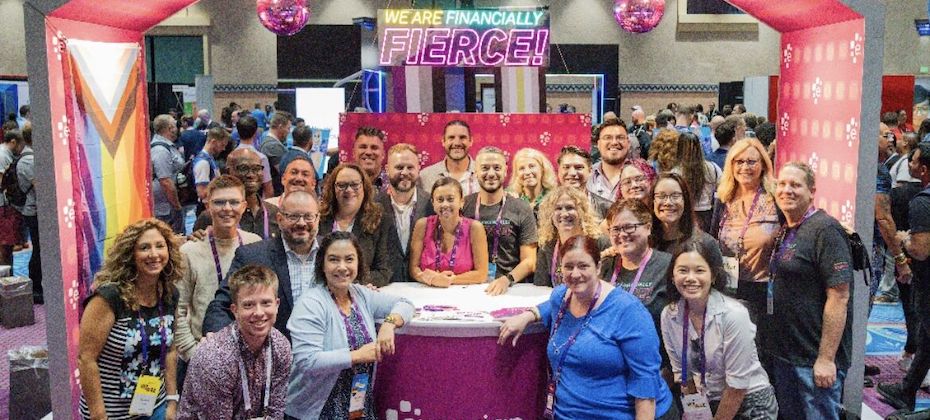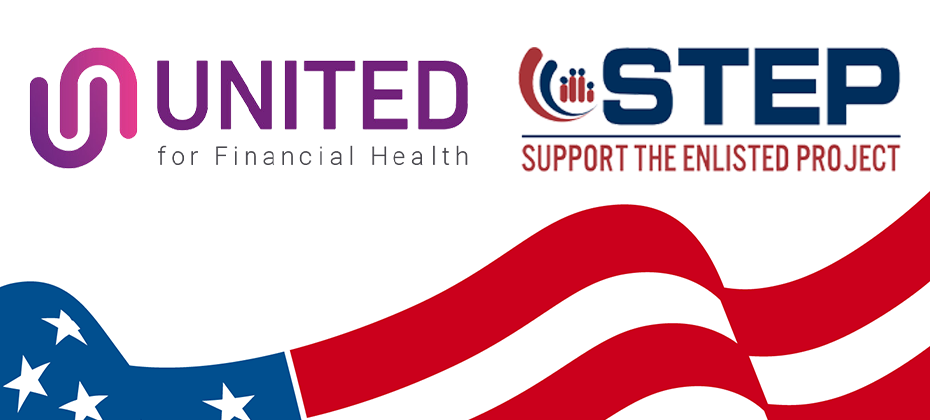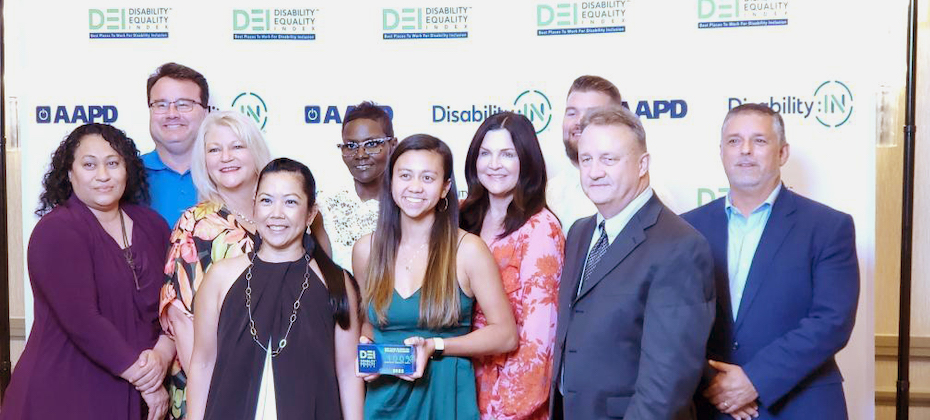Corporate Responsibility
Experian cares about giving back through volunteerism, donations, education and more. We put our hearts into the communities where we work and live, which is the driving force that helps us make a difference. Read about our community impact below:

Ball pits, a video game and a neon-pink house might not be what typically comes to mind when you think of our mission of financial inclusion. But that’s some of the ways Experian spent its summer sharing resources and information to empower underserved communities. FINANCIAL INCLUSION AND INNOVATION It was our second year as the exclusive financial literacy partner. In partnership with the National Urban League, we introduced this program to the athletes and their families participating in the all-star weekend. We also created a gamified app that enables users to shoot hoops using gesture controls as they learn about credit and financial tools. Experian’s partnership with UnidosUS includes support for its Financial Empowerment Network (FEN), a program, which offers free, individualized, culturally-relevant support to Latino families. Our colleagues shared credit education resources and their journeys to financial health at the national conference. We are… financially fierce! As a proud sustaining Titanium partner of Out & Equal, we brought The House of Experian to this year’s Workplace Summit. Hundreds visited the eye-catching attraction to learn about financial and credit tools. We also led engaging conversations about money matters for the trans community and dove deep into the financial wellness of LGBTQ+ consumers and entrepreneurs. To learn more about the gaps and needs of the community, we’ve launched a financial wellness survey in partnership with Out & Equal. COMMUNITY ADVOCACY The mental health and wellness of our teammates is a priority for Experian, and it was a big topic of panel discussions at the Disability:IN Annual Conference. Empowering Asian American and Pacific Islander (AAPI) professionals is the focus of the annual Ascend Leadership Convention. This year’s theme was “I Ascend,” encouraging participants to share how they navigate and succeed in their careers. At Essence Fest’s National Urban League Women’s Empowerment Luncheon, Victoria Crain, Experian’s vice president of global compliance and governance and co-executive sponsor of our Black Professionals Employee Resource Group, shared keynote remarks about courage and legacy. EMPOWERING THE NEXT GENERATION

When people think about the automotive industry, data probably isn’t the first thing that comes to mind. But make no mistake: data is one of the underlying currents keeping the automotive industry running. Data answers all sorts of questions for OEMs, lenders, dealers, and consumers. And recently, with electric vehicles (EVs) growing in popularity, a new set of questions around battery health has emerged for dealers and consumers alike. Understanding battery health is particularly crucial for dealers when assessing trade-ins, and for dealers or consumers purchasing a used EV. Oftentimes, battery health is a more informative metric than those traditionally looked to assess a vehicle, such as milage, or vehicle age. This information hasn’t been readily available for dealers or consumers, until now. To that end, Experian announced a strategic alliance with Recurrent, the battery range and analytics company, to offer Recurrent’s Battery Report alongside Experian’s AutoCheck® vehicle history report (VHR). The Recurrent Battery Report offers additional data and attributes on an EV’s battery health that no other VHR presently offers, including current and future range estimates, climate impact, remaining battery warranty, and more. Offering the Recurrent Battery Report with an AutoCheck vehicle report will bring a level of assurance dealers have been previously unable to attain when buying or selling used EVs, increasing transparency and easing range anxiety for consumers. Through this alliance, we’re doubling down on our commitment to helping dealers buy and sell used vehicles with confidence, and this commitment extends to used EVs, as well. The data shows that EVs have reached a tipping point, comprising more than 5% of new vehicle registrations in 2022, and growing. Dealers are going to see them come back to the showroom as trade-ins more frequently, and being able to quickly assess them, as well as sell them with transparency will be key to longevity in the market. Experian is on the forefront and has been leading the charge in EV data, leveraging vehicle registration data to help OEMs, lenders and dealers understand where EV market share is growing the fastest, model popularity, and more. Additionally, we have EV audiences, built with our extensive marketing resources, that help dealers find the most interested potential EV buyers. But this is just the beginning. As EVs continue to penetrate the market, Experian is committed to innovating and constantly pursuing new data sources to anticipate market needs and help inform strategic decision-making.

For all of the ways money – and access to it – affects our lives, it’s unfortunate that it is not discussed regularly with young people. Sadly, when it is discussed, it’s often in response to highly emotional financial stress or difficulty rather than as a positive learning opportunity. Establishing a positive, fact-driven relationship with money early in life can be a critical factor in future success. Equitable access to financial tools and resources to create a better tomorrow can help everyone achieve their life’s goals. That’s why we’re proud to announce the launch of the Center for Financial Advancement® (CFA) Credit Academy. CFA is a key initiative of HomeFree-USA, and we’ve been partnering with the organization to provide complementary training to their housing counselors on financial and credit education information and resources. This new six-month program is for 250 scholars from 14 Historically Black Colleges and Universities (HBCUs). My colleagues on Experian’s Credit Education team are leading the program to help scholars gain an understanding of credit and its importance. The hope is they’ll become knowledge ambassadors for their peers, family and their communities. Experian research shows there are 28 million US consumers who are unable to participate in the mainstream financial ecosystem today because they don’t have a financial identity. Credit invisibility more frequently impacts underserved communities with 26% of Hispanic consumers and 28% of Black consumers unscoreable or invisible compared to 16% of White and Asian consumers. That can make homeownership, the greatest driver of generational wealth, an even bigger challenge for underserved communities. Ensuring these students are aware, informed and visible within the credit ecosystem will help them access more equitable lending when they’re ready to take steps to buy a car, own a home, and build generational wealth. In addition to live sessions and self-paced content, the CFA Credit Academy culminates with a hackathon competition in April, challenging all students to form teams of four at participating HBCUs to build the next best credit education program for their peers. The winning team will earn a $40,000 scholarship, sponsored by Experian. We can’t wait to see what the scholars come up with, and we look forward to sharing their ideas. To learn more about Experian’s work in diverse communities: visit www.experian.com/diversity.

It continues to astonish and amaze us that the majority of the men and women who enlist in our nation’s military bring immense commitment but very little money. When you’re an E5 or lower military rank with a family living in Southern California, the cost of living in this region can be financially challenging. Delilah Moreno Denny remembers earning $13,000 a year during his first year in the Army and the “pass the hat” exercise during morning formation when someone in the unit had a new baby. Delilah served in the Army reserve while pregnant, and her unit gifted her a basket full of diapers. As co-executive sponsors of the Military, Veterans, and Patriots (MVP) Employee Resource Group at Experian, we sought to continue that kindness and found Support The Enlisted Project (STEP). Our members have organized virtual baby supply drives and helped at the warehouse. Denny Galiano STEP fills the gap for enlisted members in many ways. We’re proud that Experian is expanding our partnership by bolstering its Emergency Financial Assistance (EFA) program through our United for Financial Health initiative. EFA helps soldiers, sailors, airmen and marines learn about financial literacy and credit. Many of our enlisted members join the military just out of high school without basic financial education about credit, balancing a checkbook, saving for the future, or managing debt. EFA helps military members move from financial crisis to financial self-sufficiency so that they can have a more stable future during their service and when they become veterans. As supporters of STEP and its mission, and as veterans, we’re excited that our relationship is evolving from providing basic needs to helping create a better tomorrow for our nation’s military service members. It is our honor to continue serving our U.S. Armed Forces community by providing resources that will lead to financial empowerment.

In my role as Chief Sustainability Officer at Experian, I often hear from communities that feel that they’re not seen or heard. That they’re marginalized. I’m proud that our United for Financial Health (UFH) program can be a global catalyst towards financial inclusion. This is the kind of work UFH is supporting with two new partners: Born This Way Foundation (BTWF) and True Colors United. Founded by Lady Gaga and her mother Cynthia Germanotta, Born This Way Foundation supports youth mental health and created Channel Kindness, a digital storytelling platform. Experian is proud to support an expansion of Channel Kindness, which will be a safe space for young people to reflect on significant financial days throughout the year such as college graduation, tax day and a #BeKind21 Campaign event focusing on the role kindness plays in a person’s financial wellness. True Colors United was founded by Cyndi Lauper, and aims to end homelessness among LGBTQ+ youth. We will collaborate with them to create financial literacy resources to help this “invisible” community overcome barriers to fair and equitable access to credit and financial tools. These new partnerships are just a couple examples of our support for the LGBTQ+ community. Earlier this year, we achieved a 100% rating on the Corporate Equality Index from the Human Rights Campaign Foundation in the U.S., making Experian a Best Place to Work for LGBTQ Equality for the fourth consecutive year. We also received a Silver Award from Stonewall for our commitment to inclusion of LGBTQ people in the workplace. We provide a process to assist trans and non-binary consumers with name changes to their Experian credit reports. During Pride Month, our weekly Twitter #Creditchat addressed important financial topics such as Financial Tips for Same Sex Couples and the LGBTQ+ Community. We look forward to sharing stories from Channel Kindness and the resources from True Colors United. To learn more about Experian’s commitment to financial empowerment for all, check out The Power of You: 2022 Diversity, Equity and Inclusion Report.

During Disability Pride Month, we are especially proud and hopeful by our most recent honor: Experian earned a score of 100 out of a possible 100 in the Disability Equality Index® (DEI). The DEI is the world’s most comprehensive benchmarking tool for the Fortune 1000 and Am Law 2001 to measure disability workplace inclusion against competitors. Several of our colleagues were on hand at the recent 2022 Disabilty:IN Conference to pick up our award. We improved from our score of 90 last year, and are considered a Best Workplace for Disability Inclusion. We’re honored to partner with two of the community’s leading organizations, Disability:IN and the National Disability Institute towards our commitment to financial empowerment for people with disabilities. We’re hosting conversations like this one to raise awareness of the barriers and explore solutions to financial inclusion. Experian is powering the credit resource page of the Financial Resilience Center so consumers have information at their fingertips. People with disabilities represent over one billion people across the globe. As one of our colleagues who represented Experian on a panel about innovation at the 2022 Disability:IN Conference explains, disability is a natural part of the human experience, and it crosses lines of age, ethnicity, gender, gender identity, race, sexual orientation, socioeconomic status and religion. It’s in that spirit that we held a Global Hackathon, challenging our colleagues to create future products and services that can further the mission of financial inclusion and equity for communities worldwide. As co-executive sponsors of Experian’s ASPIRE employee resource group, which advocates for teammates with disabilities, we’re proud to have our progress acknowledged. And we’re hopeful because while we know the work of inclusion will never be done, the Disability Equality Index indicates we’re evolving in the right direction. Learn more about Experian’s commitment to creating a better tomorrow for the communities in which we live and work in The Power of You: 2022 Diversity, Equity and Inclusion Report. Hear from Experian’s Roselyn M. about our culture of inclusion:

Experian is a company built on purpose. Every day we help people make the most of their data to improve their financial lives. This is what drives us and you can read more about our progress in our inaugural Improving Financial Health report. It is our social mission to improve financial inclusion, because fair and affordable access to credit enhances opportunities in life. While we are proud of our achievements this year, we know there is more to do. Over a third of the global adult population still lack access to basic financial services, while one billion people don’t have official proof of identity. 1.7 billion people are also completely ‘unbanked’ and risk being overlooked by the entire global financial services system. And this problem exists everywhere. More than 63 million people in Brazil have unmanageable debts that are affecting their credit rating. Whereas in the US, 28 million consumers are ‘credit invisible’ and an additional 21 million consumers have “unscorable” credit files, meaning they have what’s considered a thin credit file or limited credit history. Much of this comes down to provision of appropriate education and knowledge around good financial management, alongside the tools and products that can empower people in gaining access to fair, affordable credit. Through our community investment programme, we have provided vital support to communities, which was reflected by our colleagues volunteering nearly 25,000 hours of their time over the last year. This is in addition to an investment of US$15.9m in programmes that support our communities, including enhancing financial literacy with partners in Brazil, the USA and the UK & Ireland. Examples here include financial literacy support for microentrepreneurs through Sebrae in Brazil, Words That Count with the National Literacy Trust and Number Confidence Week with National Numeracy in the UK, alongside partnerships in the USA with the National Urban League, Operation Hope and Saver Life which aim to empower Black Americans through financial education. In addition, our social innovation products reached over 21 million people this year, offering innovative ways to verify identity and to strengthen credit profiles. It is our aim to help everyone have fair access to finance, no one should miss out on the opportunities which can transform lives. As the current inflationary environment adds extra pressure on households around the world, we recognise the significance of the role we can play to help ensure people can get through this period of financial pressure. Our new report outlines the progress we have made and restates our commitment to helping everyone improve their financial health in the future. Please read more in the Improving Financial Health Report.

As a leading information services company, some of our chief priorities include protecting and ensuring the accuracy of consumer information. The integrity of our data is critical and aligns with our efforts to advocate for financial inclusion for everyone. Data accuracy is particularly relevant for the transgender and non-binary community with regard to name changes. It’s important to note that information about gender/sex, age, race, ethnicity, religion or sexual orientation is not included in credit reports or scores. However, when someone transitions, and changes their name, their credit and financial history may still be tied to their birth name, which is also referred to as their “deadname.” This can unintentionally “out” the consumer or force them to establish a new credit history. At Experian, we have a process through which those who identify as transgender and non-binary can provide legal documentation to prove their identity without the negative emotional and financial impact. You can learn more about this process here. When you affirm your identity and update your name, Experian will also suppress your deadname so it does not appear on your Experian credit report. Taking these steps only changes your name on your Experian credit reports, and you may need to inquire about the process with other credit bureaus. Fair access to credit tools is part of our mission, as is providing these services with dignity and respect. At Experian, this is our purpose, advocating for all communities and people. This is financial inclusion.

I’m delighted to announce that Experian has been named as a Top Employer across five countries. Our teams in the UK, Germany, Brazil, Singapore and Australia were all recognised in the 2022 awards which is a fantastic achievement. At Experian we pride ourselves on having a great People First culture, it’s something we are all proud of and want to protect. We do this by supporting a dynamic, positive and inclusive working environment for our employees wherever they are in the world. Our people are passionate about the work that we do, using data, analytics and technology to help transform lives and create a better tomorrow for people and organisations. We see our people live that purpose everyday in their work and it is wonderful to see that pride, about the role we play - supporting clients, consumers economies and society – getting recognised once again.